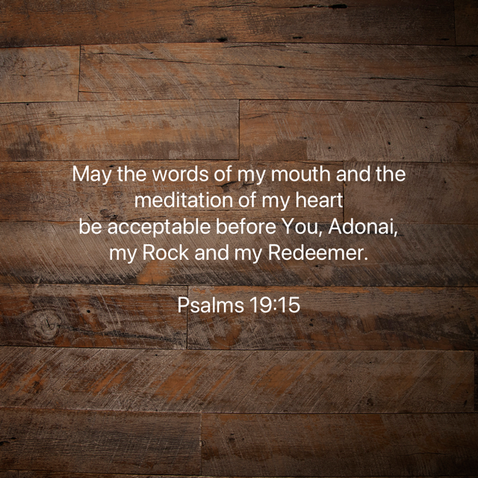|
Good morning!
We're so glad you chose to join us today!
When we meet in person, we share our joys and concerns with each other. If you have prayer requests to share, you can add them to the comments on this post. When you are ready, use this prayer to get started.
Gracious God, we thank you for the freedom we have through Christ. We thank you for freeing us from the burden of our sin and from having to live as though everything depends on our performance.
This morning we also thank you for the church and for the body of believers to which you have joined us. We thank you for those who have yet to know you. We pray for them and for their needs, and we ask that you would help us, in our words or our actions, not to be a stumbling block to their faith. In Jesus’ name we pray. Amen.
Today's lesson is on 1 Corinthians 10:23 - 11:1.
Lesson context
The city of Corinth was one of the great centers of commerce in the Mediterranean world of the first century AD. It was located near a narrow strip of land — an isthmus — that connected two major land masses. The city had a harbor to the east and another to the west. Maritime traffic between Asia and Rome had a choice of routes: either the dangerous and longer route around the Peloponnesian Peninsula or the shortcut of a four-mile limestone trackway between Corinth’s two harbors. Merchants choosing the latter would pay to have their ships hauled in their entirety from one harbor to the other on this road. Like many seaport cities, Corinth was quite worldly and eclectic. Pagan temples and the idolatry they represented characterized the city. The contents of 1 Corinthians indicate that many in the church there had struggled to overcome practices of their former pagan lifestyles. (See 1 Corinthians 6:9-11.) Having planted the church in Corinth on his second missionary journey, Paul found it necessary to write to its members while he was in Ephesus on his third journey. Paul was headed toward Corinth at the time, but Ephesus was several days away by sea travel, and the situation couldn’t wait for a personal visit. Reports had come to Paul regarding needed correctives and clarifications in Corinth. In 1 Corinthians 8, Paul had introduced the difficult issue (for that time) of eating meat that had been offered on pagan altars to idols. Meat that was left over from a pagan sacrifice, initiated by a worshipper who had brought the sacrificial animal, was at the disposal of the officiating priests. What they couldn’t eat personally they would sell in the marketplace. Such meat would be less expensive than other meat because the pagan priests didn’t have any investment to recover. Some Christians wondered about the propriety of buying such meat. In doing so, were they participating in pagan worship and thus compromising their witness for Christ? In this regard, Paul emphasizes two points in 1 Corinthians 8. The first is the awareness that an idol is “nothing” (8:4); therefore those who are mature in knowledge on this point were free to eat such meat. Paul’s second point counterbalances the first: “Be careful, however, that the exercise of your rights does not become a stumbling block to the weak” (8:9). This stresses the importance of demonstrating concern for those having a weak conscience. Such a person might witness a fellow believer eating meat that had been offered to idols and thereby be drawn back into idolatry. Paul had more to say on this issue, and that is today’s text.
Exercising Freedom (10:23-30)
The two statements in this half-verse — “I have the right to do anything — but not everything is beneficial” — are almost an exact repeat in the Greek of what Paul writes in 1 Corinthians 6:12a. “I have a right to do anything” appears to have been something of a proverb among the Corinthian believers. They might have created it to justify certain behaviors in light of their freedom in Christ. However, Paul responds by pointing out something they may not have thought of: What is legally permissible should be considered alongside the issue of what is beneficial. In the second half of this verse, Paul makes a similar point. Even though something might be permissible for us personally, it might not be constructive. Both points spring from the understanding that Christians are not to think only of themselves. We must also consider what impact our actions might have on others. Paul affirms the basic truth that Christians are, indeed, free. In the case at hand, they don’t have to have a guilty conscience about eating food sold in the market because it is all part of the earth that was created by God. That is true regardless of what happened before the meat arrived at the market. The same is true, Paul says, if an unbeliever were to invite a member of the Corinthian church to dinner. However, if someone points out that the meat had been offered in sacrifice to a pagan god, Paul advises the Christian not to eat it — not because it should matter to the Christian but because it seems to matter to the other person.
A modern example
“What’s your verse?” my friend snarled. “Where in the Bible does it say that it’s wrong for me to sleep next to my girlfriend as long as we’re celibate?” My wife and I had asked our guests to sleep in different beds because they were unmarried. Our guest room is right next to the bedroom of our young children, who were learning what to believe about relationships and marriage. (In retrospect, I could have made my expectation clear in advance, but I did not anticipate that they intended to share a bed.) In response, I didn’t quote any Scripture to him, although we had a two-hour conversation and prayed together. It seemed to end well, but he grew angry again and left for a hotel at 1 a.m. Later as I pondered his question, “What’s your verse?”, 1 Corinthians 10:23 came to mind. Our hearts can go to great lengths to justify our actions in terms of the freedoms we enjoy in Christ. But to consider what effect our actions could have on others requires spiritual maturity. Here’s a quick self-check: When an opportunity arises to do something, go somewhere, and so on, is your primary thought about what you desire for yourself or about how your choice may influence others?
Exercising Responsibility (10:31-33 and 11:1)
Paul continues to maintain the tension between Christian freedom and restraint, but now he adds important context. Everything we do must be done for the glory of God. No matter what we do, we must honor that imperative. Scripture is filled with the understanding that the purpose of everything that has been created is to glorify God. That imperative transcends every time, place or culture. Therefore, whatever we do, it should be with the intent of giving glory to God. And if our actions cause another to stumble in his faith, that does not bring God glory. It could actually cause someone to abandon the faith or to veer from the kind of faith that God desires. In verses 32 and 33, Paul uses himself as an example. He does not do whatever he pleases. Instead, he thinks about what a Jew would need or what a Greek would need so that he can present the Christian faith to that person in the best possible way. He wants the Christian of the Corinthian church to imitate him in that regard. It might seem egotistical for Paul to point to himself as an example. That would be a concern for most of us. But in Paul’s case, it was true. This was “simply an honest, straightforward assessment of the kind of man he was,” the lesson states. In the following verse, (11:1), Paul offers another caveat. He is not the prime example. Even he is only following the example that Christ set. Jesus did not live with his own desires in mind. Instead, at every turn Jesus did and said whatever best met the needs of the other person. Even in his death on the cross, Jesus set aside his own desires in order to save as many people as possible.
Conclusion
A certain Christian publication featured a series of tributes to a Christian leader who had gone to be with the Lord. That this man’s life and ministry had an impact on countless numbers of people was clear from the words written about him. Among the tributes included was one statement that caught my attention: “He made us better.” To make others better is part of what it means to edify others — the key word in our lesson title. Sadly, we are surrounded by influences that make us anything but better. The behavior on display in media of many kinds often features and even glorifies the worst in human conduct. These won’t make us better except possibly as cautionary tales. As followers of Jesus in a fallen world, we will not win every person with whom we share our faith in Jesus. But we can, as salt and light, seek to make the people we encounter better, or at least add some brightness to their lives, because we brought something of the spirit and character of Jesus into their lives. Paul’s primary concern in our lesson text is making the edification of others a priority within the body of Christ. The example he gives of eating meat offered to idols is not an issue for most believers today. Modern equivalents might be those places and things that observers come to associate with us when they see us — places and things that work against holiness. Do we have Christian freedom to attend movies that are rated other than “G”? Yes, indeed. But how will doing so affect the openness to receive the gospel of those who see us at such movies? This is, of course, an all-the-time challenge. It involves our lives out in the public arena, which must be lived with a sense of duty both to glorify God and as a witness to others (believers and unbelievers). It involves the kind of freedom that is anchored in personal holiness (1 Peter 1:15-16) without legalism or hypocrisy (Matthew 23:16-26). It involves foregoing our “rights,” as Paul did. (1 Corinthians 8:9; 9:15, 18) for the good of others. This of the person who introduced you to Christ. That person wasn’t perfect, and neither will you be. But that doesn’t mean the standard of Matthew 5:48 should be lowered! Resolve to be like the one above who “made us better” as if eternal destinies are at stake. As we ponder these things in our hearts, may it be said of us as Paul said of himself near the close of his life, “I endure everything for the sake of the elect that they too may obtain the salvation that is in Christ Jesus, with eternal glory” (2 Timothy 2:10).
Prayer
Father, thank you for the freedom in Jesus that liberates people from slavery to sin. In this world where freedom is often misunderstood and abused, help us to represent our freedom in Jesus in a way that honors you and edifies others. In Jesus’ name we pray. Amen.
Questions for discussion
Benediction
Today's benediction is from the Tree of Life Version.
Next week, we will be starting the winter quarter, Faith That Pleases God. It will also be the first Sunday of Advent.
Our lesson will be on Ruth 1:6-18, 22.
0 Comments
Leave a Reply. |
AuthorWe are a small, rural Presbyterian church in southwestern Pennsylvania. Archives
July 2024
Categories
All
|



 RSS Feed
RSS Feed